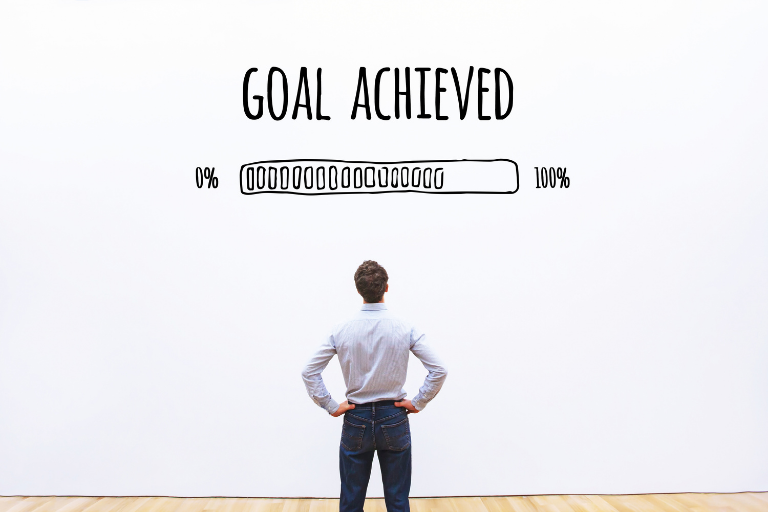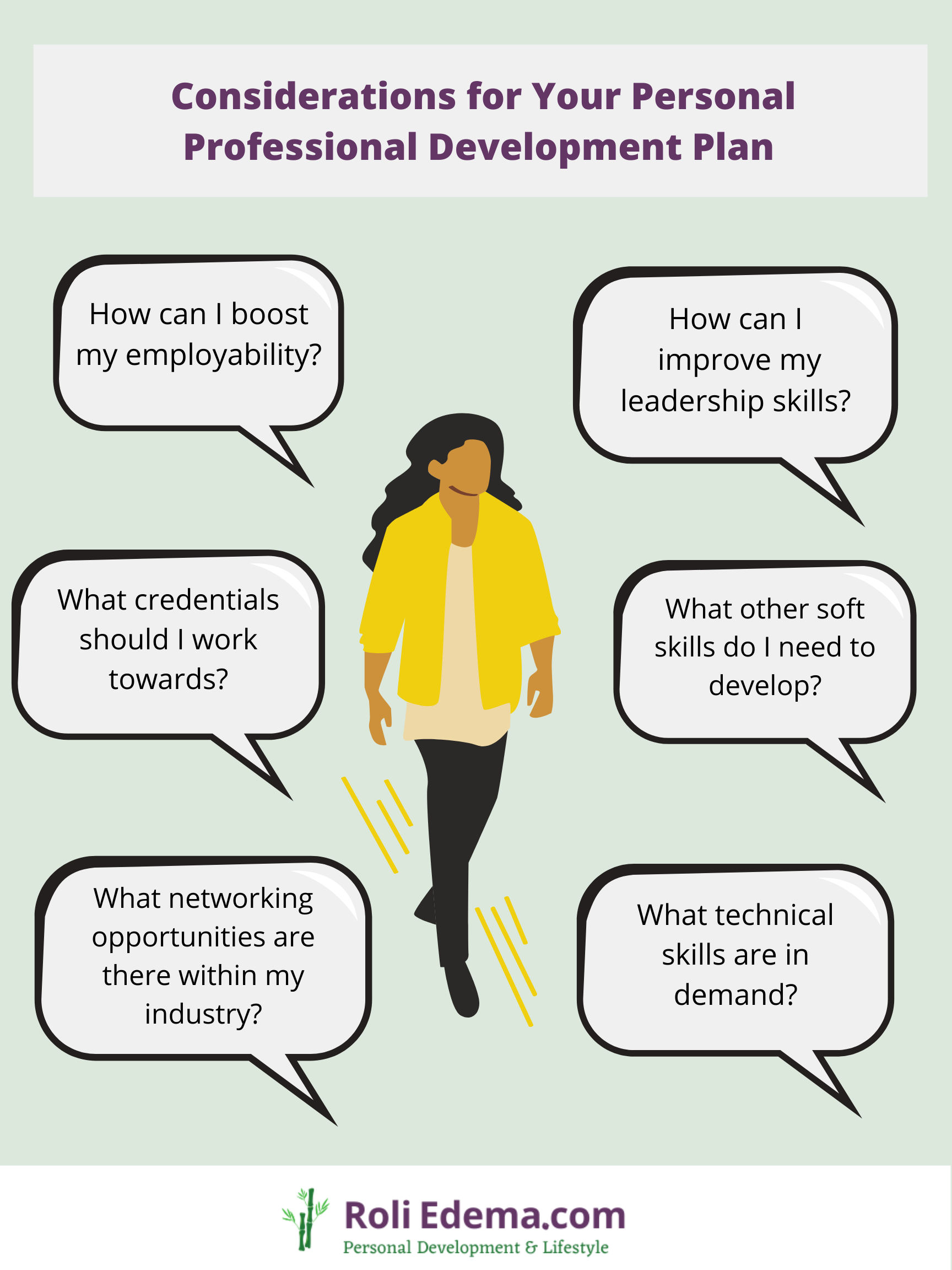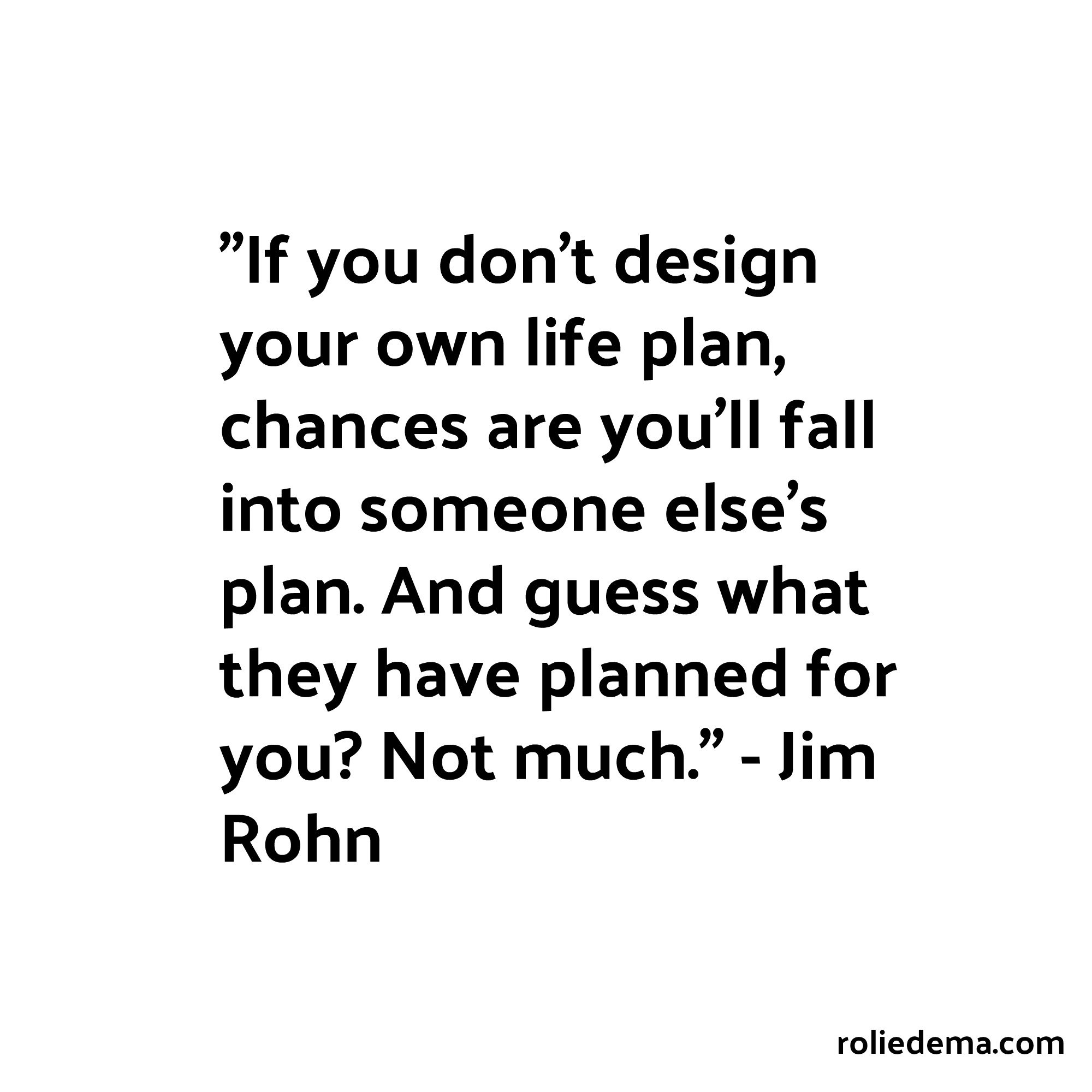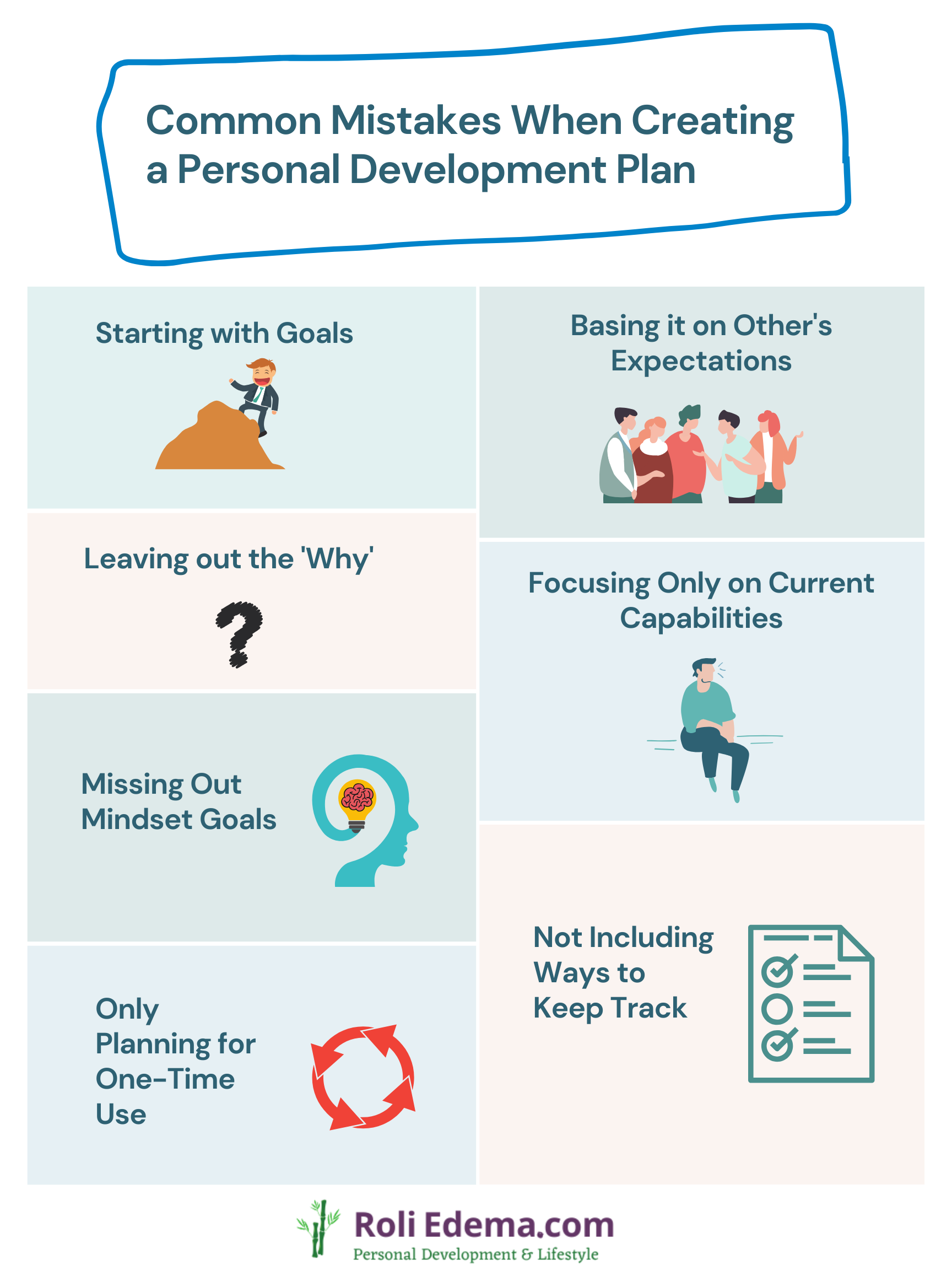- Home
- Getting Started with Personal Development
- Personal Development Plan
How to Create a Personal Development Plan: A Step-By-Step Guide
Creating a personal development plan (PDP) is a key step to designing a life you love. Here's a free template and important tips for developing your own plan.

I created my first personal development plan when I was 16.
Since then, I’ve learned a lot about the best ways to create a vision for your life and get it down on paper to help you reach your goals. Moreover, I’ve created and used a template to turn many a beloved idea from dream, to goal, to reality.
I think personal development planning is something that would really benefit a lot of people, but they just haven’t discovered the concept. It’s actually something that’s quite easy to do, and hopefully the free template I’m sharing can take away a lot of the hard work for you – so all you’re left with is the fun part of designing a life you love.
I believe that when you design a plan for your life, you should do it right. You need to understand how it can help you and what key parts to include.
So without further ado, I’m going to guide you through the process of creating a personal development plan, the importance of doing so, information on developing a professional and career plan, examples, and really everything else you’d want to know about this.
What is a Personal Development Plan (PDP)?

A personal development plan is a blueprint for achieving success in key areas in the years to come.
No builder builds a house without getting a proper plan.
So too, our lives need direction and planning. Planning for your future is essential to achieving your goals.
A personal development plan (at least a good one) takes a high level look at various aspects of your life before narrowing down on specifics. Such analysis is really what makes our goals come true because we see what we need, but also how exactly to get there.
Related: What is Personal Development?
Living Intentionally
Speaking still in terms of a builder, creating a house without a blueprint would be a disaster.
If the builder were to just go ahead nonchalantly and build a house for you, what would happen?
Halfway through construction you might not like what you see.
Likewise, going through life without a plan would also be a disaster.
And this is way more fragile than a construction project because
a) It’s your life
b) Time is finite
Now, this doesn’t mean that you have to have every single little thing planned out in your life.
First of all – that’s impossible. Second of all, spontaneity in the right quantities can be a beautiful part of life.
But you should always have a good idea of where you’re going and how to get there.
Here’s a quote I like:
“If you don’t know where you’re going, any road will get you there.” – Unknown
Are you willing to take just any road when it comes to your career, your relationships, your health, your finances, etc?
I don't think so.
That's why you need a personal development plan to provide a level of direction.
This direction will fuel you with purpose that translates to greater joy in your everyday living.
Download the Free Personal Development Plan Template (PDF)
Before we get into the nuts and bolts of this process, I just wanted to speak about a template that makes your life easier.
I’ve created a free personal development plan template that you can use to create well-designed life that speaks to your aims in life. You can download it below.
I’d recommend that you download it before you read the rest of this article. This template is my gift to you, and will greatly reduce the time and effort in doing this activity.
Sure, you can also create your own, but I do think it’s important to use a good template.
Sadly, a lot of the templates available online are just a one-page table with a couple of columns. In my opinion, that kind of generic planning template is limited in terms of the value it can provide.
The way I think of it is that you are creating a blueprint for your life and future successes. It’s the type of thing you’d want to dedicate a reasonable amount of thought and care to, and so using a high quality template is key.
So just make sure to grab yours before you go.
How to Create a Personal Development Plan
The first process in creating a personal development plan is a mental one.
You’ve got to figure out what you really want in life before you do anything else.
Setting the right goals is critical. That’s why I use a personal development planning process that is all-encompassing.
I’m going to explain the concept of personal development planning behind each of the 9 exercises in the process I use. You’ll see the specifics of each exercise when you download the template.
1. The Very Best Place to Start for Maximum Achievement
When mapping out a personal development plan, I find it’s best to begin with the end in mind.
In the first exercise, you’ll think about your life as an overview and as a grand picture before you create individual brushstrokes.
A common mistake in this process is jumping the gun and setting targets before a person even figures out what they really want.
The truth is that before you even start this process, you have to visualize the possibilities.
Remember that a personal development plan spans out into the future and considers your potential for personal growth.
So when you create your own life plan, you don’t want to limit yourself to goals based on your current abilities.
That’s what limits a lot of people. Your personal development plan will help you aim high and create success that even you will be impressed by at the end. It’s important to allow yourself a range of possibilities before you narrow things down and create workable goals.
2. A Factor You Don't Want to Miss Out
A key part of personal development is understanding how much time you have.
Although we’re creating a personal development plan, we’re technically not starting from scratch.
You’ve already got decades of your life behind you, and now it’s time to make the ones ahead count.
Getting a good perception of how much time you actually have to achieve your goals really boosts your drive and productivity.
With this in mind, I’ve created a special activity in the personal development template to help you come to terms with time you realistically have in your life.
3. Putting the Personal in Personal Development Plan
Before we can become the people that reach our goals, we all need to do some self-analysis.
Therefore, a fundamental part of creating a personal development plan is learning more about how you see the world.
We all have people who inspire us. Maybe some of their personality traits remind us of ourselves, maybe they’ve reached the goals that we hope to reach one day.
Whatever the case, identifying your role models and then thinking about what it is that makes them attractive will help you out a lot in the long term.
I love reading personal development books written by people who have achieved a lot more than I have. One thing that I’ve found that’s help me grow is not just to admire people, but to try and pick out what it is I like about them.
Such an approach has motivated me to improve my life in specific ways. I might learn how to improve my habits from one person, how to improve my confidence from another, how to not give up after continuous setbacks from yet another person…you get the point.
When you’re on that level of self-analysis and inner exploration, you know you’re going to get somewhere really good. And that’s why it’s another exercise I’ve included in the planning template that I've made available.
4. Now You've Done the Homework, it's Time to Create Goals

When you’ve done a bit of prep work, then you can finally start shaping out some goals.
But it’s important to think about what we’ve talked about up to this point first - that’s what sets you up for success.
There are broad areas of personal development that are great starting points for picking the right goals.
Here are some areas of personal development, think about what ones most appeal to you:
- Health
- Finances
- Relationships
- Spirituality
- Career
These large, general categories create a foundation for digging deeper. We want to avoid staying at the surface level, e.g. just listing a goal as ‘improve my health’.
I’m going to give some more specific examples below:
Health – Do you want to start eating better by incorporating more vegetables into your diet? Do you want to cut sugar? Do you want to get into a good sleep routine so you’re not always tired? Is this about exercise – do you want to start weight training to get a more toned figure?
Finances – Do you want to get out of debt? Do you want to learn more about investing and implement your own investment strategy? Do you want to lower your monthly bills and cut out unnecessary expenses? Do you want to take a personal finance course?
Relationships – Do you want to show greater appreciation for your family? Are you looking for a partner? Do you want to learn how to overcome certain insecurities and be able to show affection to others? Do you want to become a better listener?
Spirituality – Do you want to improve your relationship with God? Do you want to build your faith? Do you want to make more time for constructive meditation? Do you want to become more at peace with the world around you? Do you want to find more ways to share with others and bring meaning to their lives?
Career – Do you want to improve your leadership skills? Do you want to improve your employability? Do you want to improve your networking skills and overcome your shyness at company events? Do you want to create a plan for curating your best work? Do you actually want to create a business and free yourself from your 9-5?
See the possibilities?
Okay, enough with the questions.
The point is that you want to identify broad categories that matter to you and then narrow down to more specific goals.
My personal development plan template has a couple of exercises for you to do this in a strategic and fun way, because it’s good to have fun and be excited while planning your goals.
Related: What are the Best Personal Development Activities?
5. Setting Yourself Up For Success
I’m a firm believer in setting yourself up for success. Many times we get excited by our goals and rush to work, but in doing this we might skip the vital steps that will ensure our plans are successful.
Just like you prime a wall before you paint, and you prepare the soil before planting a garden, you should prepare for action before reaching for your goals.
Some of this preparation involves doing a bit more research on your goals so you can fully understand what is involved.
When I read the 10X Rule by Grant Cardone, one of the points that truly resonated with me is the idea that we often underestimate the amount of action that it will take to achieve an outcome.
Have you ever experienced this?
You estimate the amount of work that will be involved in a project, whether it’s for your boss, starting your own business, or a personal passion project.
Underestimating the amount of action you will need, and then falling short of your targets can be quite disappointing, especially when you were working on something that means a lot to you.
With any goal, you want to set a time frame that you want to achieve the goal by to make you committed and accountable. But you also need a realistic understanding of what you’re working with and how you will bridge any knowledge or skill gaps.
I want you to be successful with your personal development planning, and so I found it very necessary to include a section in the plan that will help you do the prep work you need to achieve your goals.

6. Four Words That Make a Difference
Strengths, Weaknesses, Opportunities and Threats.
A tool originally used by top organizations to come ahead of the competition, a SWOT analysis is a great method of assessing where you're currently at with your personal development and how you can improve.
Intrapersonal intelligence is an important type of intelligence that will help you on the path to your life and career goals. Intrapersonal intelligence refers to a person’s ability to be introspective. It includes how well you know yourself, including your strengths and weaknesses, emotional triggers and motivations.
You want to be able to recognize your strengths and find a measure of pride in them. It’s only through recognizing our strengths can we harness them in everyday life. When it comes to reaching a particular target, you want to find ways to magnify your strengths by using them strategically, where they matter the most.
Being aware of your weaknesses is a cornerstone of personal development planning. I like to put myself in situations that force me to grow and work on my weaknesses. Moreover, as humans we often find that overcoming a certain weakness helps us grow in other ways too.
If there’s anything I like, it’s a good opportunity. I’ve talked about discovering hidden opportunities before, because identifying opportunities relevant to your goal is one way to work smarter. There are always many opportunities out there in our career or niche. Capitalizing on relevant opportunities is a way to speed things up and make your life a whole lot easier.
No personal development plan is complete without identifying threats to your success. It’s good to be realistic and realise that whatever endeavour we take on, there will always be obstacles along the way. Think about what you’re aiming for through your personal development planning and what might hinder you. Now you’re one step ahead, because you’ve anticipated it.
Related Post: Expect Problems and Eat Them for Breakfast
7. The Mental Game
We could sit here all day and talk about the importance of mindset in achieving your goals.
I won’t do that - but the evidence is clear - it has been proven that mindset is a powerful tool to help us accomplish goals, overcome obstacles, and improve the quality of our lives.
Our foundational beliefs naturally affect the way we process information and experience the world around us. As was brought out in this article in Entrepreneur magazine, “having an optimistic mindset increases the likelihood of formulating a winning perspective and achieving long term success”.
What this means is that an optimal mindset has to be a core consideration in the goal planning process.
A key question I consistently ask myself is “Who do I need to become in order to achieve my goals?”
This includes the mindset and attitudes I need to adopt in order to be successful - because let’s face it - successful people see the world differently. They view life through an optimistic lens, and see the world as a place full of opportunities that are theirs for the taking.
My personal development plan template will help you self-reflect and create the right mental foundation for your success.
 Creating a personal development plan is like creating a game plan for your life.
Creating a personal development plan is like creating a game plan for your life.8. Keeping Track is Key
Taking action is vital if you want to see positive changes in your personal development journey.
And one of the best ways to ensure that you keep taking the necessary action is to repeatedly check back in on your goals.
Even if you haven’t been successful in reaching your goal, you still want to make time to write down an update or note about what went well or what didn’t go so well.
If you have reached your goal, you want to celebrate it and get cracking on the next thing. Not only do I like to write down my goals, I like to mark them as done - you know, get the victory down on paper so I can smile when I see it next time.
As they say, there’s only one way to eat an elephant – one bite at a time.
You want to set smaller targets that will help you achieve your goals. Aim to chip, chip, chip away everyday in some way or form.
Some days your work will be educating yourself by taking personal development courses or reading books. Other days you will have clearly defined targets and work to do in order to reach your goal.
Personal Development Plans For Professionals
 Pin It! Key Considerations for a Personal Professional Development Plan
Pin It! Key Considerations for a Personal Professional Development PlanAre you looking to create a personal professional development plan?
You’ll find that my 10 page template will help you figure out plans related to your job and career too.
The goal-focused template can help you across all aspects of your personal development, and I encourage you to print off the plan and replicate the process as you work on multiple areas of your life.
You’ll likely find that there are times when you need to weigh in on, and focus more on the professional part of your personal development plan.
Developing both short and long term goals can help guide your decisions throughout your career. For example, a professional development plan can help you complete a complex project, earn a certification, find your dream job, or carve out a new career.
Your professional development plan can help you self-assess and examine your current position as it relates to your career goals.
It can trigger research and help you identify transferrable skills that are valuable in any industry, including skills you already possess and skills that would be good to learn.
A professional development plan can guide you toward reaching such goals by implementing structured steps.
Overall, your personal professional development plan can set direction for your work life, while making sure that your personal goals and family life continue to thrive.
Yes - don’t understand the power of such a plan, it can be wonderful in ensuring that all of your goals are in sync.
Personal Development Plan Example

To help you
picture a personal development plan, let’s consider the example of Tracey, a 35
year old Marketing Communications Coordinator.
What sort of things might she consider in her personal development plan? Let’s take a look at a snapshot of her PDP:
In the short term, Tracey wants to exceed performance expectations in her current role. Through self-analysis she recognizes that her greatest strengths are her strong writing and interpersonal skills; she excels at working with others in a highly collaborative environment.
She has also received positive feedback on her creativity and ability to provide solutions to complex problems. Yet, Tracey realizes that while she reaches her minimum targets, she has a tendency to stay in her comfort zone.
She decides that she is going to put in effort to exceed the minimum expectations of client accounts. She plans to increase her knowledge on strategies that will enable her to capture and convert more leads.
She identifies resources that will help her do this, and finds a couple of self-paced digital marketing courses that will help her achieve her target outcome.
She also realizes that she has mentorship opportunities in her industry through a couple of contacts she met at a recent networking event. She creates a plan of how she will provide value to these contacts and develop a mutually beneficial relationship.
Tracey also keeps her long term goals in sight. She would eventually like to transition out of her role and switch to working as a marketing consultant for small businesses. She schedules time in her calendar each week to research the steps she would need to take to be a private consultant and how she would get her first few clients.
Tracey realizes that to be more successful, she has to be more open-minded and continually look for more opportunities to grow. She wants to take greater responsibility for her learning and be more proactive in seeking ways to improve her work.
As she goes through her personal development planning process, Tracey makes a note of the targets she wants to reach and the dates she wants to reach them by. She carefully plans how she will achieve her targets, what she needs to achieve them, and how she will evaluate her success.
Of course, as we said, this is just a snapshot of her personal development plan, focusing more on the professional side. Her overall personal development plan will reflect greater depth and include her more personal goals too.
Start Creating Your Plan Today
Hopefully this post has helped you see the value of creating a personal development plan. It was a long post, but it is a resource that you can bookmark and refer back to when you need motivation and inspiration for your personal development.
Always remember that the process of personal development does not occur overnight. Be patient and consistent.
Download your free personal development plan template below and try to get started today. Remember, you can print it off and use the template as many times as you need.
I’m so excited for you to have a go and see the ways your personal development plan can fuel your daily habits with purpose and drive.
All the best,
Roli Edema
Thanks for reading! If you liked this content, share with a friend:
Recent Articles
-
5 Subtle Habits That Quietly Transform Your Life Over Time
Jan 25, 26 08:21 PM
Progress towards the things that matter isn't usually loud or dramatic. Here are 5 subtle habits that quietly transform your life over time. -
Inner Work with Marcus Lynn | How to Make Change More Realistic
Jan 19, 26 06:24 PM
In this spotlight interview, therapist Marcus Lynn explains how we can begin to see emotions as information and make change more realistic in our lives. -
7 Best Personal Development Courses to Grow Your Skills and Mindset
Jan 01, 26 11:04 PM
To reach your goals for the year, there are are certain skills you might need to unlock first. Here are the best personal development courses to level up your life in 2026.












New! Comments
Have your say about what you just read! Leave me a comment in the box below.